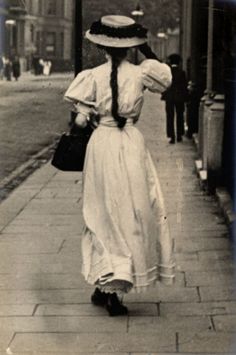
BOUND IN HONOR.
THERE is Jeanie Paull. She has been visiting at Lulu Hardy's," said Constance Stacy to Eleanor Ames. "Now we shall find out whether Lulu's father is as stern as he looks, and why Mrs. Hardy always has such a sad, woe-be gone face." The two girls joined Jeanie, who greeted them very pleasantly. They walked on together, and presently Constance, bent on gathering information, inquired after Lulu. "Lulu is well, and sent her love to all the girls," said Jeanie.
"And did you enjoy yourself in Arlington?" asked Eleanor.
"Very much indeed. Lulu's home is lovely, and she is so very thoughtful of her friends. It seems as though she cannot do enough for a guest."
"Isn't her father awfully queer and cross?" pursued Constance. "He frowns so in church, and never seems to be enjoying himself. I cannot imagine how you dared to stay in the 'house with him." Jeanie's face was quite a study; her dark eyes almost flashed as she turned to Constance, saying:—
"Mr. Hardy is a kind, good man, and Lulu's father besides; but if he were what you seem to fancy, do you suppose I would tell you? I could not be so mean. Mother has always told me that what I see or hear in a friend's house is sacred, and that to chatter things which a friend might not wish to, have known, would be unworthy of lady."
At the corner the girls separated, Constance and Eleanor looking rather ashamed, and Jeanie walking down her own street with a very stately step, holding her head high. That she should be supposed capable of tale-telling was a great annoyance to her, for her mother had trained her to be honorable. Children, may I whisper to you that we are sometimes bound in honor not to gossip about persons or occurrences, even when nobody has forbidden us to speak? Should you; happen to be sitting as quiet as a mouse, in a corner of the parlor with your book, when mamma, coming in with a friend, holds a conversation not meant for your ear, you should either get up and go away, or, if you cannot go away, you should forget all about what has been said. Above all, never go around looking wise, and dropping mysterious hints, which curious people may take up, as pegs to hang their questions on. Curiosity, when it leads you to study carefully God's wonders in stones and flowers, is a good thing. It is a good thing when it sends you to the library to find out everything the cyclopedia can tell you about a subject. When it is only an idle desire to peer into somebody's home life, it is a very bad thing. In fact, I hardly know of any way in which trouble is so surely made in this queer world of ours, as by foolish people who go from one person to another thoughtlessly carrying wicked little bits of gossip.
If Nanny or Lucy tell you that Maggie says you are awkward, or slow, or vain, or any other thing which is uncomplimentary, you are not very likely to feel pleased with Maggie. She should not have spoken unkindly about you, for her part; but if you will blame anyone, the needless talkers who carried her comments are worse than she. The Bible says that "a whisperer separateth chief friends." It was true in the old Bible times, and it is just as true today. A private and confidential note should never be shown to a second pair of eyes. If you ever have reason to think that a friend does not wish a matter to be repeated, make it your business to be silent.
"By thy words shalt thou be justified, and by thy words shalt thou be condemned." This is another bit of wisdom from the best of books. We cannot always control our thoughts, children, but we can control our lips.
Margaret E. Sangster